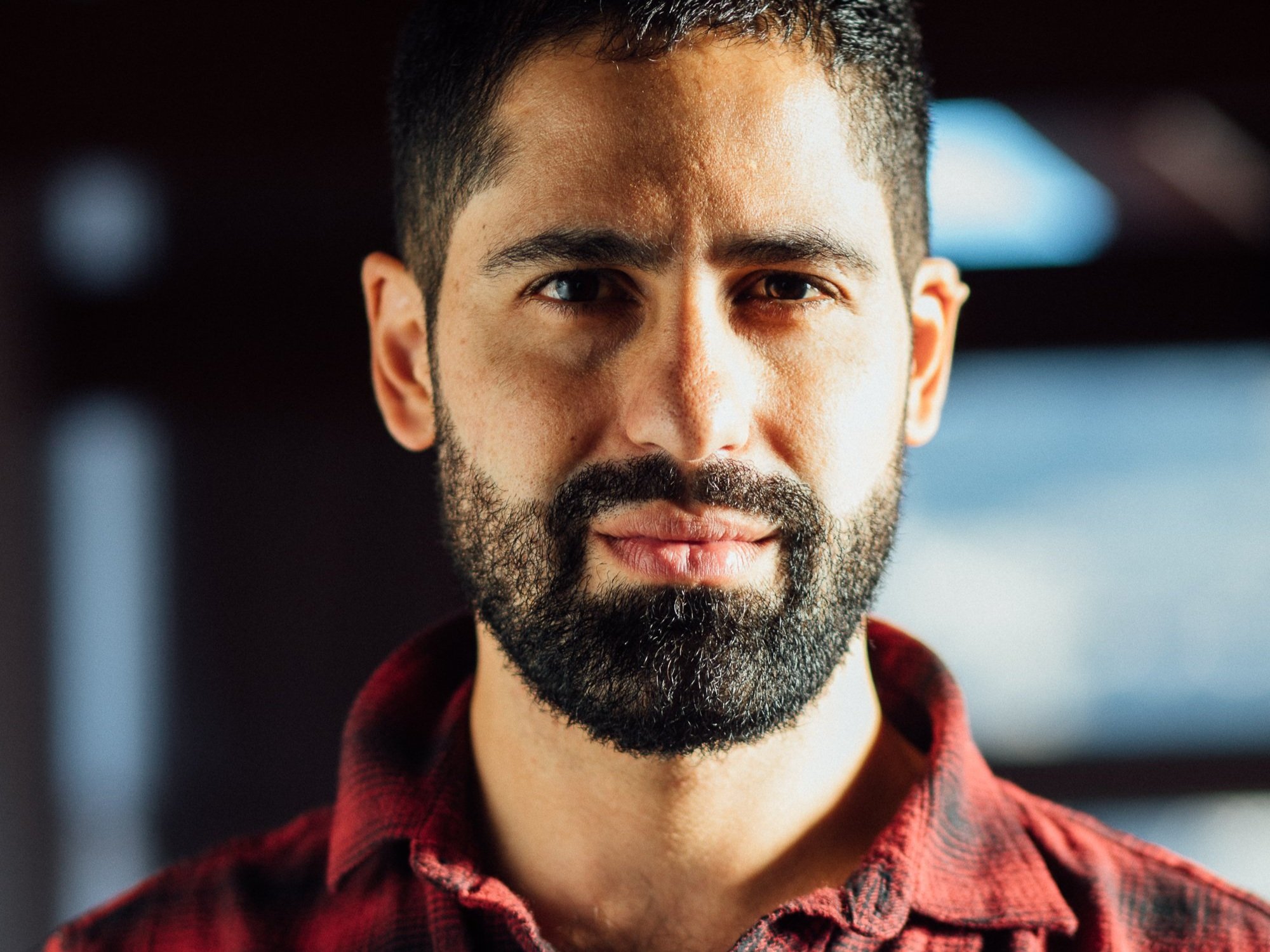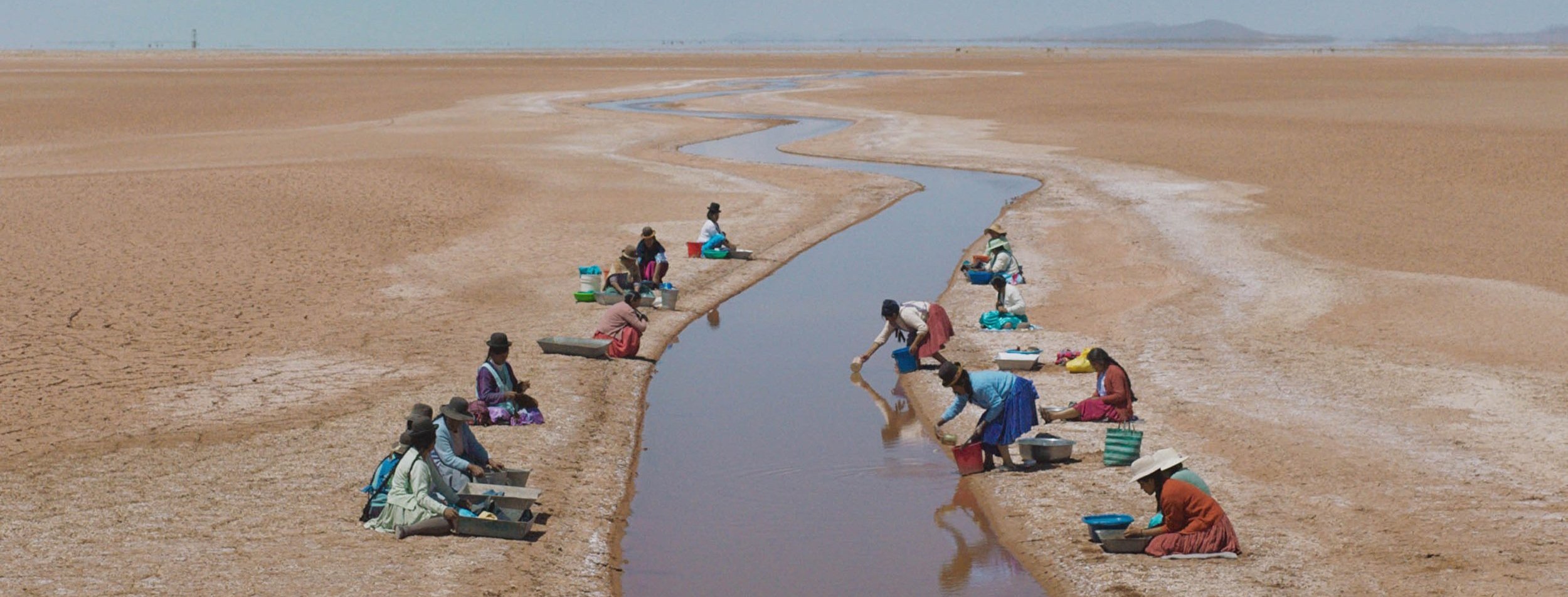By Josh Gardner
Bolivian cinema is riding a new wave. Kiro Russo’s The Great Movement won a special jury prize at the 2021 Venice Film Festival before being selected as the nation’s official submission for the Oscars. Now Alejandro Loayza Grisi is making a splashy debut with his Bolivian eco-drama, Utama, part of the World Cinema Dramatic Competition at this year’s Sundance Film Festival.
The film tells the story of Virginio and Sisa, an elderly Quechua couple holding onto life in the arid Bolivian highlands. Globalization and climate change have made survival nearly impossible, so their grandson Clever arrives to convince them to give up their way of life and move to the city.
After traveling around Bolivia as a still photographer and documentary cinematographer, Alejandro was inspired to tell a love story set against the background of the environmental struggles facing his homeland. Any great love story hinges on the casting and chemistry of its two leads, so he set out to find the perfect pair.
“When we were doing the scouting, I first saw [José Calvina and Luisa Quispe] and I made the car stop. I approached them but they didn't want to act. They were not interested. I asked to take a picture of them and they said yes. So, I gave these portraits to the casting director and used it as a reference for these two characters. But then we went back a second time and then a third time, and we always went to their home and asked them again, do you want to act? Can you please act? And then at the end, their nephew, who helped a lot in the film, convinced them to be part of the film.” They worked with Alejandro and an acting coach to get comfortable in front of the camera and used their experience as an actual married couple to bring these characters to life.
Utilizing his background in photography, Alejandro worked with cinematographer Barbara Álvarez (The Headless Woman) to create breathtaking imagery of the altiplano, including some scene-stealing llamas with bright pink ribbons on their ears. But beyond the imagery, the spoken word is just as important to the film's mission. Virginio and Sisa speak Quechua, while their grandson only speaks Spanish. “I wanted to show in Bolivia, the main language is Spanish, but the main population is indigenous. The government said we have 36 official languages and that's great, but many of those languages are being spoken by fewer and fewer people. You don't only lose a language, you lose an entire culture and a way of thinking. Because the language you speak, your mother language, gives you a way of structuring life. I wanted to show how people migrating to the cities are forgetting their languages and not teaching their sons and grandsons. It's a very complex thing because the genesis of that is very racial. They didn't want their children to be discriminated against in the cities. So, they thought it better not to teach them our culture and language, but Spanish.”
While the ecological issues are dire for those living in the Bolivian highlands, climate change and migration are universal issues. “This story is specific to Bolivia, but every country is going to have its own crisis, because people are going to start migrating or already are migrating because of climate change and are forced to find new homes. I think leaving your home must be one of the hardest things in the world. I mean, I hope people start to wonder, okay, what's going on in the next city or what's going on in the countryside of my country. I know here in the city, everything is great. But what about the countryside and why are people migrating? Whether it is because of no rain or too much rain or whatever, but climate change is going to start forcing us to find new homes.”
Alejandro was thrilled for his film to get accepted to the prestigious Sundance Film Festival, but he also hopes it encourages the Bolivian government to start supporting cinema. “A very sad thing in Bolivia is that we don't have any funds for cinema and we of course don't have a big industry to support independent films. So we kind of depend on the government to have a law, a cinema law that can allow us to make more films. I think it's obvious that talent is everywhere because minds are everywhere. I think it's a very important thing to have stories from your country being told. If you don't tell your stories, you kind of don't exist. You don't have a place in people's conscience, imagination. I mean, if your heroes are all from abroad and your stories are from abroad, you don't have your own cultural references. So I really hope that this new wave, this new Bolivian wave, wakes up our politicians to finally have a fund for us making more films because I'm really concerned now how I'm going to finance the next one. And it's a very hard, hard work.”
Josh Gardner is the founder of Cinema Lamont, a non-profit that fosters cross-cultural understanding through the power of world cinema. He also runs Cine Mexico Now, a festival of contemporary Mexican cinema in Detroit.






